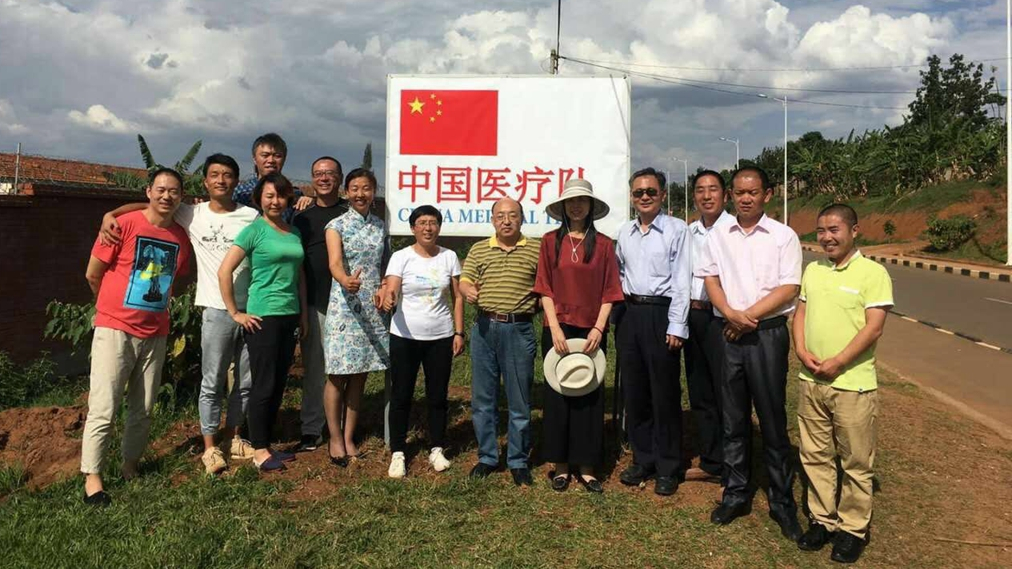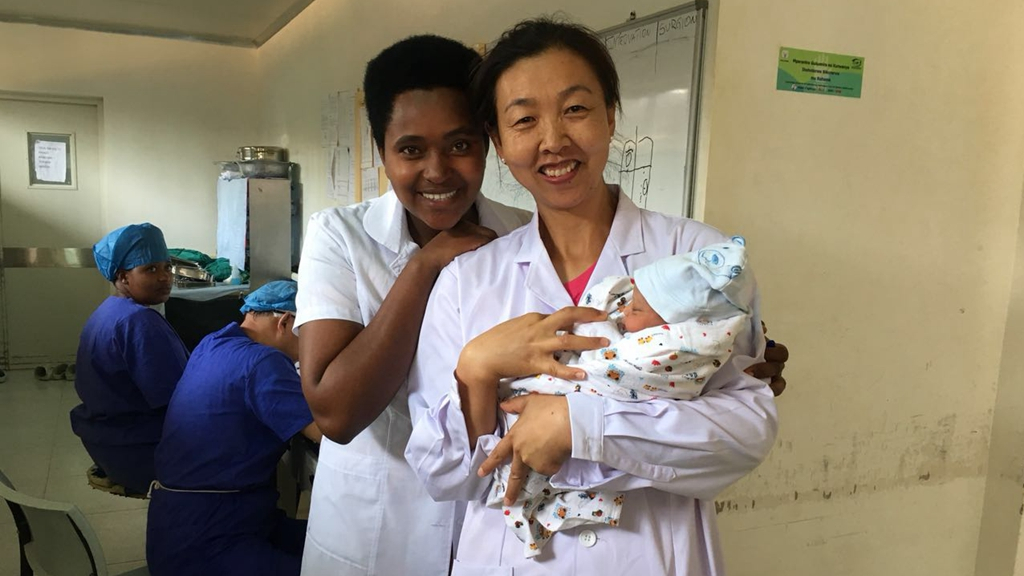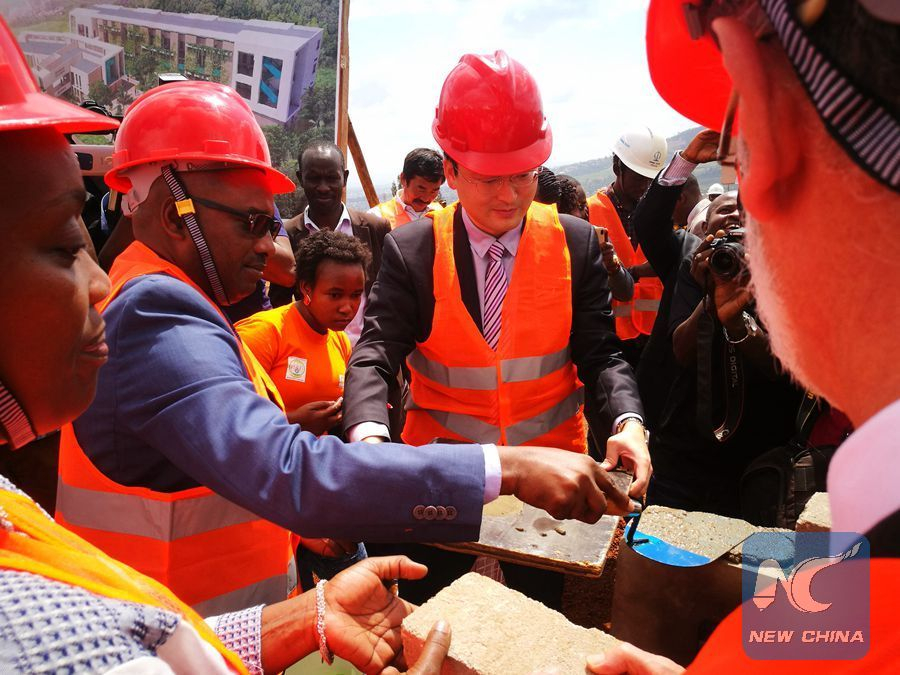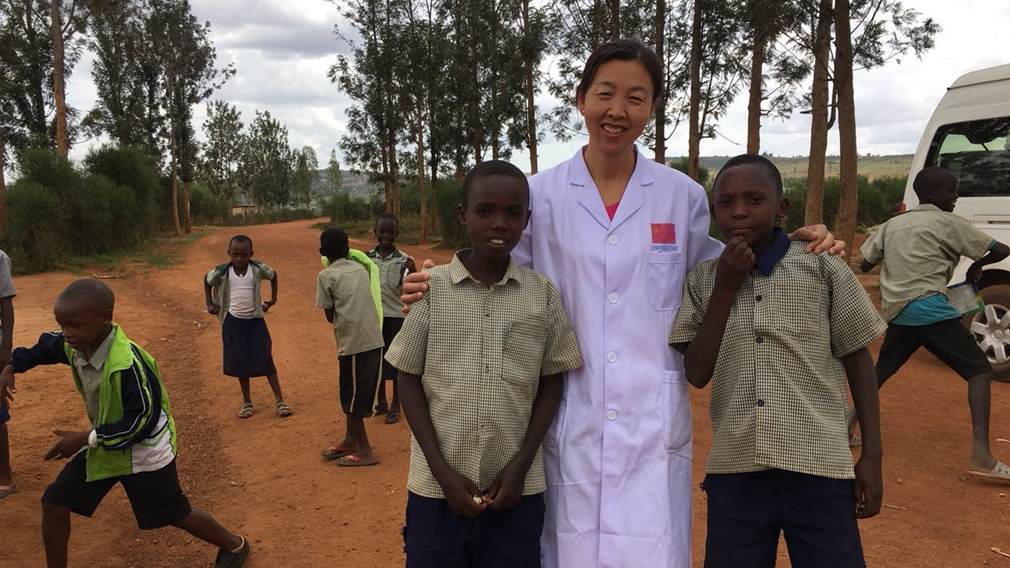
Tech & Sci
16:09, 22-Jul-2018
China-Rwanda co-op: What is it like to be a doctor in Rwanda?
Updated
15:46, 25-Jul-2018
By Guo Meiping

Practicing medicine in a foreign country sounds challenging and could be dangerous sometimes, but Chinese doctors are enjoying their time overseas.
“Providing aid in Rwanda is very hard in terms of various aspects, but I do love my job here very much,” Lu Jun, leader of the 18th Chinese medical team, told CGTN via a phone interview.
China and Rwanda established diplomatic relations in 1971, and China has been dispatching medical teams to the landlocked country since 1982. Shifting once a year, medical teams from China have so far treated approximately 800,000 patients in Rwanda, which has a population of 12 million. Chinese President Xi Jinping will pay a state visit to Rwanda, becoming the first Chinese president to visit the Africa country.
The 18th medical team, arrived in Rwanda last April, and consists of 14 medical personnel specializing in orthopedic, internal medicine, surgery, acupuncture, anesthesiology and gynecology and obstetrics.

Members of the 18th Chinese medical team in Rwanda. /Photo provided by Lu Jun
Members of the 18th Chinese medical team in Rwanda. /Photo provided by Lu Jun
All team members are from hospitals in north China's Inner Mongolia Autonomous Region, and their duties include providing outpatient services and surgical and orthopedic operations to both local and Chinese patients.
A new experience
Working in Rwanda provides Chinese doctors different experience in terms of the cases they face.
A four-time member of the medical teams to Rwanda told Lu that the most common type of disease in Rwanda is infectious disease, including inflammation and malaria.
“People here are under comparatively poor living and sanitary conditions,” Lu explained.

Lu Jun (R) with a newborn baby. /Photo
provided by Lu Jun
Lu Jun (R) with a newborn baby. /Photo provided by Lu Jun
The obstetrician-gynecologist said that one of the most difficult cases for her in Rwanda was the death of a seven-month-pregnant patient who was killed by malaria along with her unborn child.
“I sensed something wrong when I walked in the labor room... The patient had already passed away when she arrived at the hospital,” she said.
Among the team members, four have contracted malaria seven times.
“Luckily we brought artemisinin-based drugs to Rwanda and it is very effective for mild malaria,” Lu told CGTN.
Besides outpatient service and surgery, providing free treatment to Rwandans is also one of the teams' main assignments.
“Some patients said that they couldn’t afford for medical treatment and some said their diseases couldn’t be diagnosed by local hospitals,” according to Lu.
Medical cooperation

Rwandan government officials and Chinese firm executives at the groundbreaking ceremony for the district hospital, February 9, 2018, in Kigali, Rwanda. /Xinhua Photo
Rwandan government officials and Chinese firm executives at the groundbreaking ceremony for the district hospital, February 9, 2018, in Kigali, Rwanda. /Xinhua Photo
Members of the 18th medical team work at two local hospitals, Masaka Hospital and Kibungo Hospital, both built by the Chinese government.
Lu is based in Masaka Hospital located in the Rwandan capital, Kigali.
The construction of medical facilities is a good example of friendly cooperation between China and Rwanda, Zhang Liyong, Economic and Commercial Counsellor of the Chinese Embassy in Rwanda, told Xinhua last December.
According to Lu, Rwanda can only produce basic medicines such as saline, thus, the country’s main medical supply depends on imports.
China has been providing medical aid worth about 300,000 yuan (44,301 US dollars) to Rwanda on an annual basis.

Lu Jun with children in Rwanda. /Photo provided by Lu Jun
Lu Jun with children in Rwanda. /Photo provided by Lu Jun
Although enjoying her time in Rwanda, Lu said she and her teammates are facing great challenges when they got back to China.
“The medical world is developing quickly, and we have to try our best to catch up when we got back,” Lu told CGTN.
(Top image: CGTN Photo by Jia Jieqiong)
9836km

SITEMAP
Copyright © 2018 CGTN. Beijing ICP prepared NO.16065310-3
Copyright © 2018 CGTN. Beijing ICP prepared NO.16065310-3